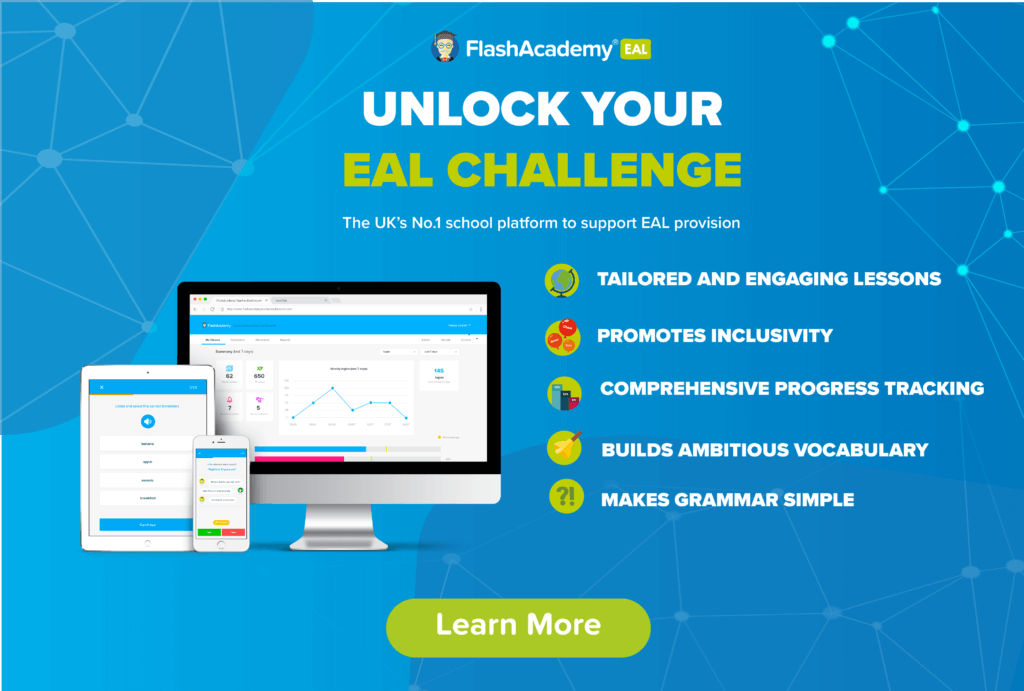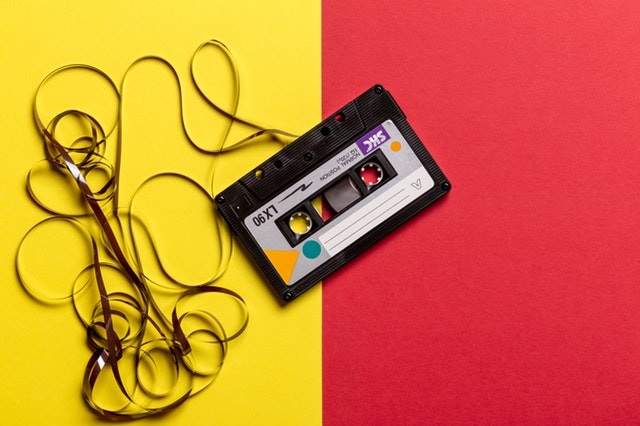

The benefits of music on the brain are now well-known. Listening to music can increase dopamine, the ‘feel-good’ chemical, and reduce the production of cortisol, the ‘stress’ chemical. In addition, listening to music can enhance learning abilities. So, why not make the most of this and use music for EAL lessons?

Sing along with karaoke
Singing karaoke can help your EAL pupils practise pronunciation. It can also help increase their recognition of the written form of words they may hear as they see the words on the screen. What’s more, singing along to the same songs as your friends is a time-honoured way of building connections with peers and may increase feelings of social inclusion. Another way to use music for EAL is to explore websites like Lyricstraining, which allows pupils to combine singing popular songs with practising their listening and spelling skills. Make sure you draw attention to the lowered grammatical accuracy in pop songs and explore the reasons for it. We also recommend you check the lyrics for inappropriate vocabulary before you suggest pupils sing along at the top of their voices!

Turn the music up
If you’re struggling to encourage your EAL pupils to speak up when doing presentations, try this activity. Pair your EAL pupils and ask them to stand on opposite sides of the room from each other. Explain that they need to present their speech to their partner… then put on some music and turn it up! Encourage them to touch their ear to signal when they can’t hear their partner. When pupils are speaking more confidently with the music loud, gradually turn it down but encourage your pupils to continue speaking at the same volume. Note: it may be a good idea to make sure there are no exams happening in the next room before you try this.

Correct mistakes in song lyrics
Although the accuracy of grammar in some popular songs is questionable, you can use this to your advantage. Why don’t you print inaccurate lyrics and ask your pupils to correct the grammar of structures you’ve studied? This will give your pupils a sense of confidence and superiority as they realise that their grammar is better than native English speakers’. Just be careful you never accidentally say ‘gonna’ in front of your EAL pupils after you do this! You can also use songs to drill grammatical structures, especially with younger learners. This Super Simple Song is my personal favourite song to practise speaking about likes and dislikes whilst revising food vocabulary. You can easily ask your EAL pupils to write their own extra verses for songs like this and make your own class version.
Use music for EAL to talk about feelings
It’s not always easy for young learners to talk about feelings, but music can help. Pre-teach some emotions vocabulary, then play clips of different genres of music. Ask pupils to note down how they feel when they listen to different musical styles, then to mingle and ask each other ‘How do you feel when you listen to…?’. Board emergent vocabulary and extend the task by asking pupils to talk about what types of activities they like to do when they listen to music and justify their reasons e.g. ‘I like doing my homework when I listen to classical music because it makes me feel calm.’

Musical classroom management
There is a song for every classroom occasion. You can use a clip from ‘Mission Impossible’ when pupils are completing a challenge task, the ‘Countdown’ theme tune when playing a team game or a ‘Benny Hill’ snippet when it’s time to tidy up. Your pupils will begin to associate the music with the activity and understand what is expected of them without you needing to repeat your instructions every time. You can also use music for EAL pupils as a reward by giving your star pupil of the lesson the chance to choose a song to play in the background during an activity. Why not use this as an opportunity for your EAL pupils to share their language or culture with others by asking them to choose a song in their home language and explain why they chose it?
Share your EAL classroom experience on the EAL Success Facebook page or if you need some new ideas for EAL classroom you can try this resource or have a look here.

